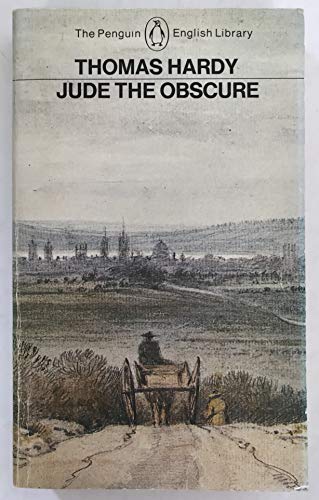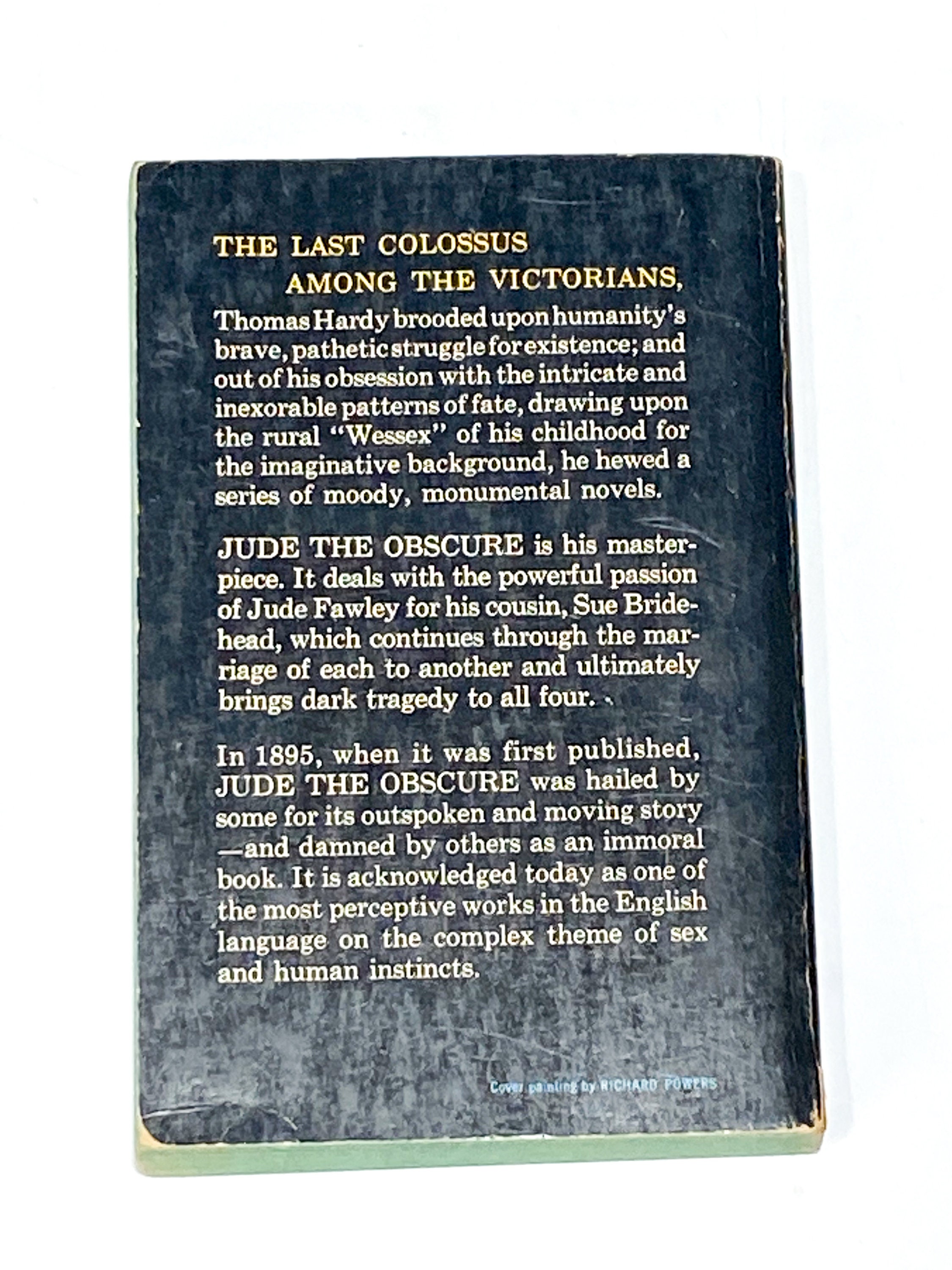


Jude the Obscure is an angry book, and a deeply radical one. Hardy's brilliant portrait of a disturbed teenager tearing a family apart culminates in the famous scene in which, having murdered his half-siblings, the boy hangs himself with the note "Done because we are too menny". The strangest and most moving moments in a novel many readers find harrowingly bleak concern Jude's thwarted love for Sue, their two children perforce born out of wedlock, and the belated appearance in their midst of "Little Father Time", the son that Jude has had with Arabella. The heart of the story will examine the humiliation of Jude's failure as a social animal, a profound and crippling obscurity ending in death. As the untutored folkteller of "Wessex", Hardy narrates Jude's tragedy inside-out through a sequence of failed relationships – with Arabella, his wife with Sue Bridehead, his cousin and true love and even with himself. These themes lie below the waterline, but they are perhaps the more menacing for being submerged.

With brilliant economy, Hardy opens up three themes: the struggle of the poor and disadvantaged to make their way in a bourgeois world the tyranny of marriage in the lives of women oppressed by a patriarchal society and the stranglehold on English life inflicted by an established church, defensively circling its wagons in the aftermath of Darwin's On the Origin of Species. But Jude Fawley, who talks to the crows he is supposed to be scaring away, is a modern English boy, with his eye on Christminster (Oxford). When the novel opens, we seem to be in Hardy's Wessex, the world of Far From the Madding Crowd or Tess of the d'Urbervilles. And it was a new beginning because henceforth he would become one of the greatest English poets of the 20th century. It was another kind of turning-point, too, because Thomas Hardy, shaken by the hostility aroused by the novel dubbed "Jude the Obscene", would never write fiction again.

In hindsight, it signals the transition to a modern literary sensibility while also painting a picture of a profoundly Victorian rural society. T he publication of Jude the Obscure is both an end and a beginning.


 0 kommentar(er)
0 kommentar(er)
